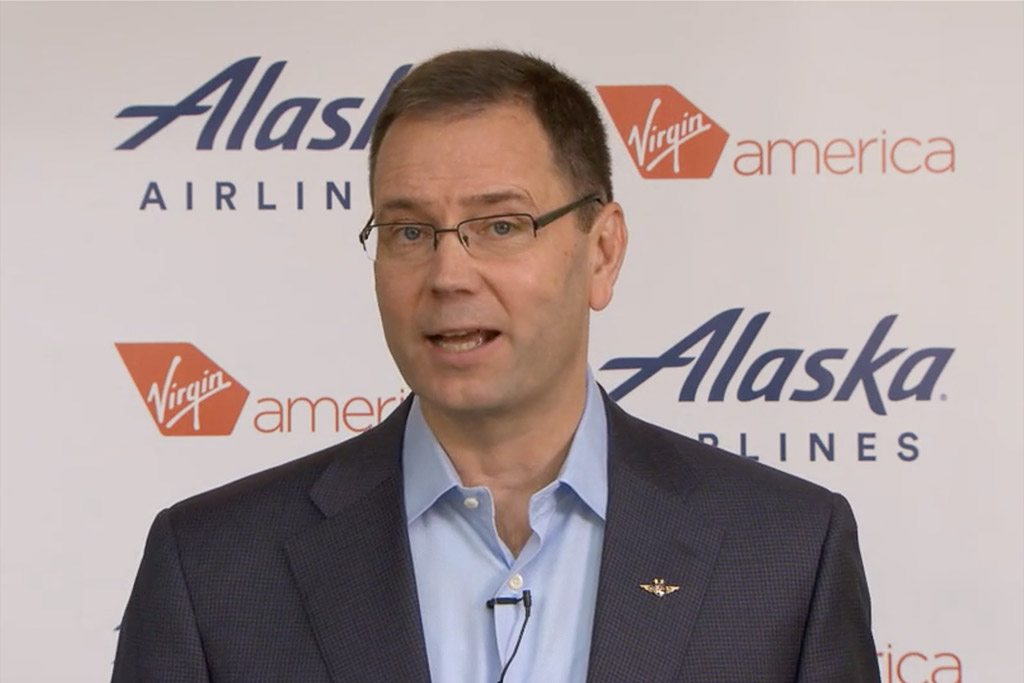Skift Take
The Department of Justice has an odd relationship with airlines. It seems to enjoy grabbing headlines about how it's doing its job to protect industry competition. But when it comes time to actually getting airlines to make real concessions, it falls short.
In the end, Alaska Airlines got off with a slap on the wrist.
It took a couple of months longer than expected — a delay that worried some investors — but the U.S. Department of Justice on Tuesday said it would clear Alaska’s $2.6 billion acquisition of Virgin America, provided Alaska makes some changes to its commericial agreements to spur more competition. Most importantly, the new Alaska, which will be the fifth-largest airline in the United States, must pare back, but not end, its codeshare relationship with American Airlines.
However, Alaska will not lose any gates at Los Angeles International and San Francisco International airports, nor will it have to give up any coveted landing rights at congested airports in New York or Washington, D.C.
“It wasn’t what everyone expected,” Robert Mann, a former airline executive and now a consultant, said in an interview. “The DOJ seems to have gone lightly.”
In other airline mergers, including the 2013 tie-up between American and US Airways, the government has required the carriers to divest gates and landing rights at key airports to foster new competition. But Alaska acquired Virgin America precisely to grow in Los Angeles and San Francisco, where it needed more gates, and New York and Washington, where it needed slots. As a result, such divestitures would have been tough for the carrier to absorb.
Officially, the government said it was filing an antitrust suit in federal court in Washington, D.C. to try to stop the deal. But since the parties had already reached a settlement agreement, also filed with the court, the suit soon will become moot.
The American Factor
In its announcement, the Justice Department congratulated itself for persuading Alaska to reduce its reliance on American, a long-time partner. According to the government, Alaska and American now codeshare on more than 250 routes, a relationship that “creates incentives for Alaska to compete less aggressively on routes both carriers serve.” The Justice Department noted that the carriers now “often behave more like partners than competitors.”
The DOJ said it had uncovered evidence that, before the merger, Alaska may have avoided adding some routes in Los Angeles that could have irritated American, one of the largest airlines in L.A. The government also said it believed post-merger Alaska might trim some former Virgin America routes that directly compete with American.
“The plan contemplated reducing or eliminating service on many of the routes where Virgin and American offer competing service today, including some of the most traveled routes in the country,” the government said.
American and Alaska will be able to continue their codeshare relationship, but the government is putting several limitations on the arrangement. Alaska will not be able to codeshare with American on any routes on which Virgin America and American now compete. As one example, that means American and Alaska cannot codeshare on the New York-Los Angeles route. Alaska has also promised not to codeshare with American, “on routes where Alaska would otherwise be likely to launch new service in competition with American.”
According to the Justice Department, American and Alaska will only codeshare in “limited circumstances where it is unlikely to lead to competitive harm and may offer some benefits to consumers.”
American and Alaska will continue their relationship within the new parameters, rather than drop the agreement, American spokeswoman Martha Thomas said. The two carriers also will continue to offer reciprocal benefits for frequent fliers, Thomas said.
In an SEC filing, Alaska said it will lose codesharing revenue from 45 markets. It predicted the loss to the carrier will be about $60 million. However, Alaska told investors it can recover roughly 70 percent of that revenue by carrying new passengers, meaning that the concessions will only cost the carrier about $15-20 million in net revenue.
“Customer demand in a market does not disappear when codeshare ends,” Alaska reminded investors.
In the filing, Alaska said it expects to earn $190 million of its $5.1 billion in annual revenue this year from its relationship with American.
Mann said he was surprised the government deemed the American codeshare issue more important than gate real estate and landing rights at congested, big city airports. Usually, the government is much more concerned with asset divestitures.
“It’s funny,” he said. “They judge the codeshares to be more anti-competitive than control of assets at airports. I wouldn’t have figured that.”
Alaska does have a similar codeshare arrangement with Delta Air Lines. The Justice Department put no restrictions on that deal, likely because Alaska and Delta’s partnership is no longer as close as it once was. Delta and Alaska, while still codeshare partners, also are fierce competitors, especially as they fight for dominance at the same airport — Seattle Tacoma.
Alaska’s deal with Delta will be worth about $65 million in revenue this year, Alaska told investors.
Alaska said Tuesday it does not yet have a close date for the merger, but the carrier said it expects it will occur “in the very near future.”
Alaska’s deal for Virgin America is valued at $4 billion, a number that includes Virgin America’s debt and aircraft leases. The company is paying $57 per share for Virgin America, a 47 percent premium over where they stock was trading just before the announcement.
The Daily Newsletter
Our daily coverage of the global travel industry. Written by editors and analysts from across Skift’s brands.
Have a confidential tip for Skift? Get in touch
Tags: alaska airlines, virgin america
Photo credit: The Alaska Airlines management team, led by CEO Brad Tilden, is confident that the concessions the carrier made for the DOJ will not have a big effect on profitability. Alaska Airlines
